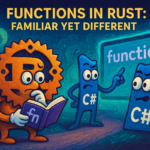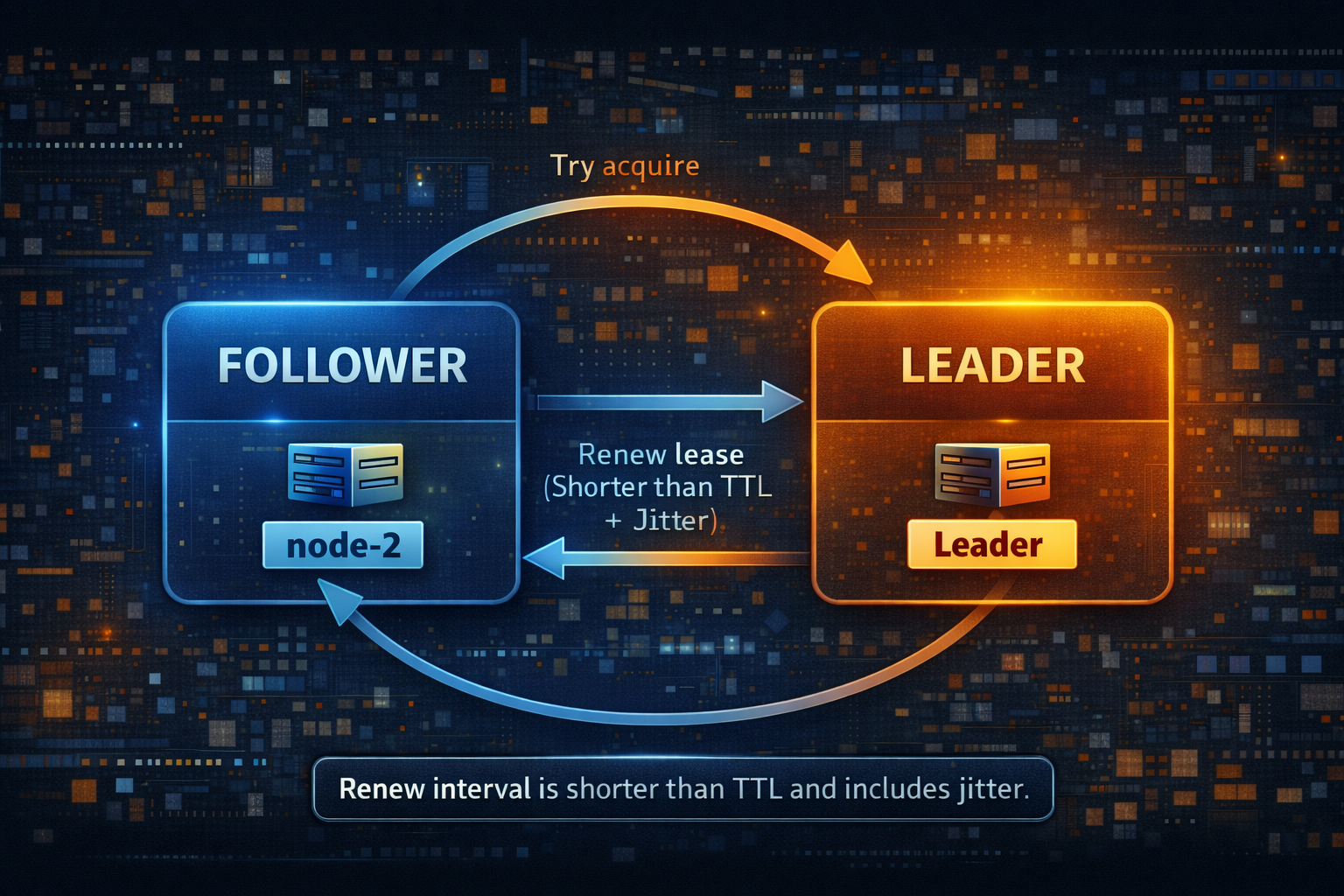
Functions in Rust: Familiar Yet Different
- Chris Woodruff
- April 15, 2025
- Rust
- .NET, C#, dotnet, programming, rust
- 3 Comments
Today’s Rust lesson hit a familiar note but with a twist. Writing functions in Rust feels almost like writing them in C#. Until, of course, the compiler reminds you that this language doesn’t always play by the same rules.
On Day 5 of my Rust-for-C# developers journey, let’s break down function definitions, type inference, return values, and where Rust and C# shake hands… and where they give each other a suspicious side-eye.
The C# Way: You Know It By Heart
Let’s take a basic C# method:
int Add(int a, int b)
{
return a + b;
}
Simple, clean, and typed from top to bottom. It’s the kind of method you’ve probably written a thousand times.
Now let’s take a look at the Rust equivalent.
The Rust Way: Concise, but Watch the Semicolon
fn add(a: i32, b: i32) -> i32 {
a + b
}
Looks familiar, right? But let’s pause.
That return value isn’t using the return keyword. Instead, Rust has this expression-style return: the last line of your function becomes the return value as long as you don’t end it with a semicolon.
Now try this:
fn add(a: i32, b: i32) -> i32 {
a + b;
}
Boom. The compiler complains. Why? Because adding that semicolon turns the expression into a statement—and statements return () (the unit type), not your expected value.
So yeah… semicolons are not just decoration in Rust. They have meaning.
If you prefer being explicit, you can use return:
fn add(a: i32, b: i32) -> i32 {
return a + b;
}
That works too, but the idiomatic way in Rust is to lean into expression returns when possible.
Type Inference: The Good and the Explicit
C# lets us do things like:
var result = Add(2, 3);
And Rust? It loves type inference inside functions but not at function boundaries.
Inside the function:
fn greet(name: &str) {
let message = format!("Hello, {}!", name);
println!("{}", message);
}
Totally inferred. But when you define a function, Rust wants you to be explicit with parameter and return types. No var-style magic here.
So this won’t fly:
fn multiply(a, b) {
a * b
}
Nope. Rust needs to know what a and b are, or it won’t compile.
Multiple Returns? Think Tuples
If you’re used to C# tuples or out parameters, Rust does tuples too:
fn split_number(n: i32) -> (i32, i32) {
(n / 2, n % 2)
}
You call it like:
let (quotient, remainder) = split_number(9);
Destructuring built-in? Yes, please.
Functions as First-Class Citizens
Rust also lets you pass functions around just like delegates in C#:
fn apply_twice(f: fn(i32) -> i32, x: i32) -> i32 {
f(f(x))
}
fn square(n: i32) -> i32 {
n * n
}
fn main() {
let result = apply_twice(square, 2);
println!("Result: {}", result); // 16
}
Yep, functions are values. Just like C# delegates and lambdas—but with less ceremony.
Final Thoughts: Familiar, but with Rules That Bite
Writing functions in Rust gave me déjà vu, but in a good way. But the small differences matter. Rust functions are predictable, expressive, and often less verbose than C# once you get past the quirks:
- Semicolons are powerful.
- Return types matter.
- You’ll love tuples.
- And the compiler? It wants you to be very clear.
Tomorrow we explore Rust’s basic data types, including tuples and arrays. The title might just be: “Where Are My Classes?”







Jasper de Vries
Note: Rust has no operator overloading.
There are pros and cons to this, but in this case it has the advantage that a function reference can be the simple function name without worrying about parameters.
Libraries such as nom take advantage of this to make composing functions very simple in syntax without giving up typesafety.
Jasper de Vries
I meant method/function overloading.
Rust does have operator overloading (just implement a Trait).
IngisKahn
You can get more concise:
int Add(int a, int b) -> a + b;